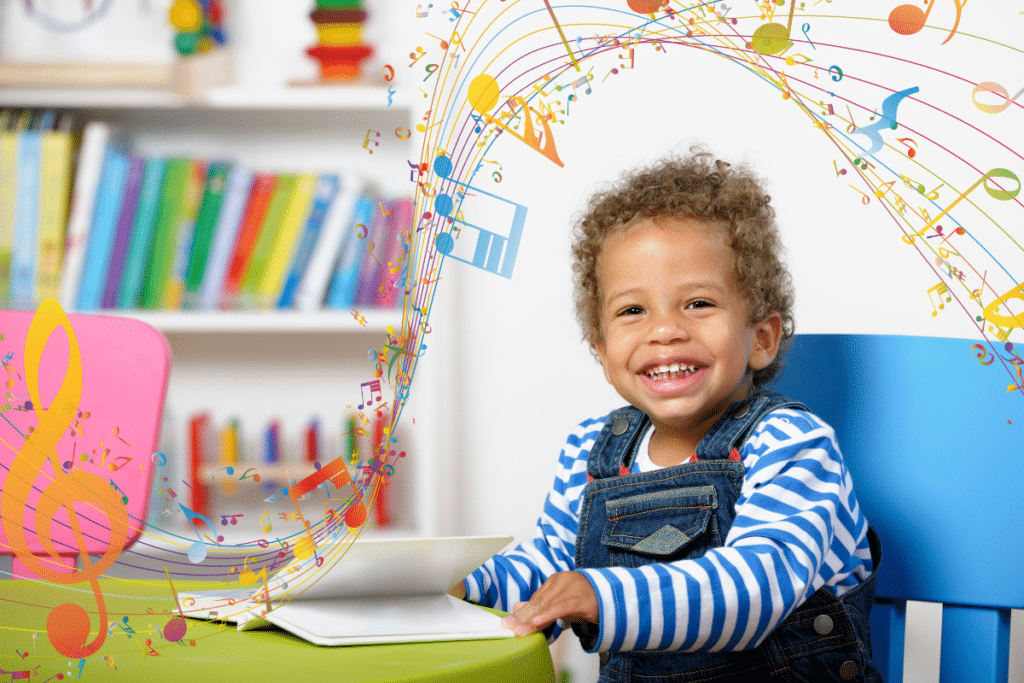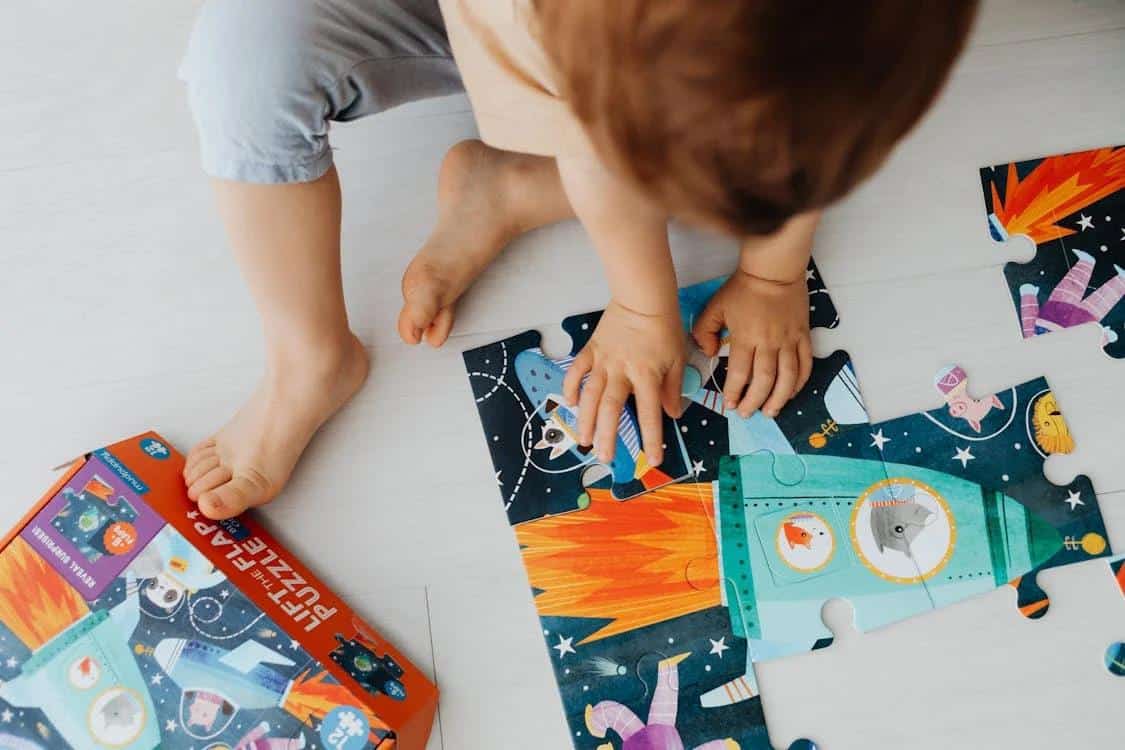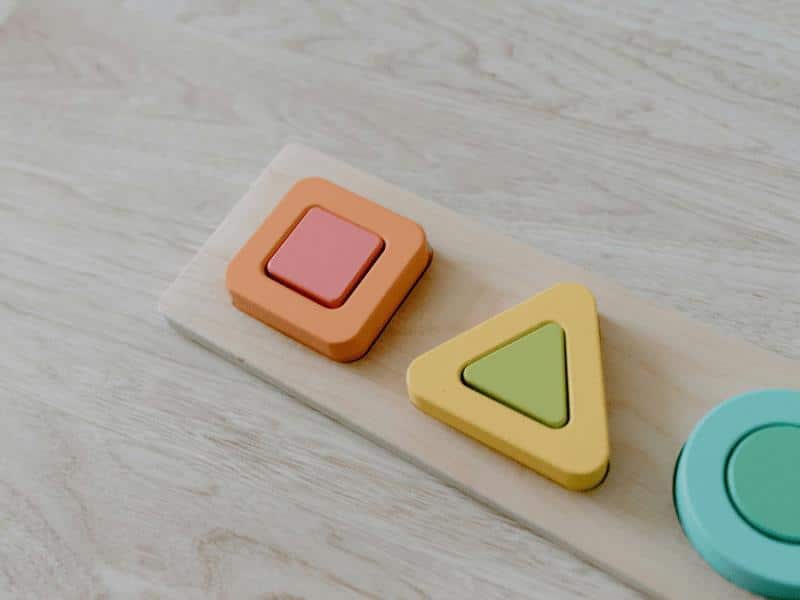
Cognitive Benefits of Music in Early Learning
Introducing music to little learners isn’t just fun. It’s a proven way to boost their cognitive skills and set them on a path to enhanced learning and creativity. Let’s explore the benefits of music in early learning and how melodies and rhythms can sharpen young minds and make learning a joyful journey.
Benefits of Music in Early Learning – 6 Cognitive Benefits of Music for Young Kids
Improved Language Abilities
When we listen to music, we’re really tuning into all the different sounds, how high or low the notes are, and the beat. It’s kind of like learning how to read by listening to how words sound and how sentences flow.
When kids sing songs or play instruments, they’re practising remembering words and telling stories through music, which is really great for learning how to speak and read better.
Just like when they’re talking, playing music teaches them to listen carefully to sounds and rhythms, which helps them get better at picking out words and understanding what they mean. This makes it easier for them to learn to read and speak well because they’re using what they know from music to notice the little details in how words sound.
Enhanced Memory
Think about how often we remember the lyrics of a song from years ago. Music enhances memory in much the same way. When kids engage with music, they’re practising remembering melodies, rhythms, and lyrics. This kind of practice boosts their memory skills, which spills over into other areas of learning and helps them remember things more effectively in general.
Better Mathematical Skills
Do you know music and maths are closely linked? Music inherently involves mathematical concepts such as counting, patterns, and sequences, directly linking it to improved mathematical skills.
When children learn rhythm, they are essentially learning about fractions, beats, and measures, applying these mathematical concepts in a practical and engaging way. Understanding musical structures can enhance a child’s ability to recognise patterns and solve mathematical problems, contributing to better performance in maths.
Increased Attention and Concentration
Music demands focus, whether it’s playing an instrument or following a melody. This helps children improve their concentration skills, making it easier for them to focus. It’s like training their brain to pay attention for longer periods not just in musical settings but across all learning environments. Improved attention and concentration skills can set your child up for better academic performance and more effective learning.
Strengthened Executive Functions
Music education supports the development of executive functions, which include critical thinking, problem-solving, planning, and decision-making skills.
Playing music requires children to make on-the-spot decisions (such as improvisation and interpretation), engage in complex reasoning (such as when reading music), and apply organisational skills (such as coordinating hand movements while reading music). These activities strengthen the brain’s executive functions, which are crucial for academic success and effective daily life management.
Pattern Recognition
Music is full of patterns, like rhythms and tunes that we all enjoy. When kids dive into music, they get really good at spotting these patterns.
This talent for seeing patterns doesn’t just stay with music; it transfers, helping them remember sequences and patterns in other things too, like maths, language, or even their daily routines. So, learning music and its patterns not only boosts their musical skills but also sharpens their memory, making it easier for them to catch on to other learning areas and everyday tasks.
Music in early learning enhances memory, language, and social skills, helping young children develop a strong foundation for cognitive growth. Additionally, the benefits of music in early learning include improved focus and emotional regulation, setting children up for academic and personal success.
The Social and Emotional Impact of Music
Imagine a group of children, instruments in hand or voices ready to sing, learning to move together in harmony. This is where music begins its work, teaching them the invaluable lessons of teamwork and cooperation. The act of creating music in a band, orchestra, or choir is not just about hitting the right notes; it’s about listening, adjusting, and supporting one another. These experiences sow the seeds of empathy and understanding, skills that are crucial in every aspect of life.
But music’s influence doesn’t stop at social skills. It reaches deep into the realm of emotional expression and regulation. For many children, music becomes a voice for feelings that words cannot capture, offering a safe and profound outlet for emotions. Through the strings of a guitar or the keys of a piano, children learn to communicate their inner world, gaining emotional resilience and understanding along the way.
Cultural Exploration Through Music
In a world rich with diverse cultures and traditions, music serves as a bridge, connecting children to the global community. It introduces them to the sounds and stories of different lands, fostering an appreciation for diversity and an openness to new experiences. This cultural exploration not only enriches their minds but also plants the seeds of tolerance and curiosity.
Perhaps one of music’s most enchanting gifts is its ability to ignite the imagination. As children experiment with melody and rhythm, they embark on a creative voyage, exploring new ideas and possibilities. This creative exploration is not just an artistic endeavor; it sharpens their problem-solving skills and encourages innovative thinking, preparing them for a future where creativity is a prized asset.
Tips for Encouraging Your Child to Enjoy Music
There are some really fun and effective ways to spark an interest in music and watch your child blossom.
Explore Musical Preferences
Start by exposing your child to a variety of musical genres and styles. Play different types of music at home and see which ones they gravitate towards. This exploration can spark an interest in music and help them find their own musical taste.
Attend Live Music Events
Have you ever taken your kids to a live concert? It’s a fantastic experience! There’s something about the energy of a live performance that can really ignite a passion for music in them. It could be anything from a local band at the park to a school musical. Just the joy of seeing music performed live can make a big difference.
Incorporate Music into Daily Routines
Make music a part of your daily life. Sing songs together during playtime, listen to music in the car, or create a bedtime routine that includes lullabies. This constant exposure can deepen their interest in music.
Choose the Right Instrument
Choosing an instrument can be quite the adventure. It’s great to let your child pick what resonates with them. Sometimes it’s the sound or the shape of an instrument that captivates them. For younger children, start with simpler instruments like percussion (drums, tambourines) or keyboard instruments, which can be easier to learn at the beginning.
Peripheral Vision and Visual Tracking
By integrating field of vision exercises with playful at-home activities, parents can help their children build crucial early learning skills that support cognitive development in a way that’s both effective and enjoyable. Play a song with a steady beat and blow bubbles around your child, encouraging them to pop each bubble in time with the music. This fun game helps build rhythm, timing, and coordination, linking movement to music in a playful way!
Creating a Musical Home Environment and Utilising Technology
Create a Musical Environment at Home
Have musical instruments accessible at home for your child to explore freely and enjoy the benefits of music in early learning. This doesn’t necessarily mean expensive instruments; simple ones like recorders, ukuleles, or even homemade instruments can spark an interest in music.
Why not set up a mini-stage in your living room with a few simple props like pallets and rugs? Add some makeshift instruments—or real ones if you have them—and maybe a makeshift microphone. Suddenly, you’ve got a home theatre where your kids can perform. This isn’t just about music; it’s about giving them the space to express themselves, to play, and to explore the endless possibilities that music brings into their lives.
Use Technology
There are plenty of apps and online resources designed to teach music theory, rhythm, and even instrument skills in an engaging way. These can be great supplements to traditional music lessons, helping you reap the benefits of music in early learning years. There are online educational programs available that include educational songs, and a great way to use technology in education.
Encourage Participation in Group Music Activities
Group music activities can also be very encouraging. Being part of a choir, band, or music club not only boosts their musical skills but also teaches them about teamwork.
Practice Patience and Encouragement
Encourage your child without putting too much pressure on them. Celebrate their musical milestones, no matter how small, and be patient. Learning music is a journey, not a race.
Be a Musical Role Model
Lastly, showing your own love for music can have a huge impact. Share your favourite tunes with them, maybe even play an instrument if you do. Your enthusiasm for music – it’s contagious!
Learning Through Music with Shichida Australia
At Shichida Australia, we believe in making learning a blast through music and song! Every Shichida class includes a variety of educational songs that enhance concept, language and memory development. Every class starts and ends with a song too and kids love to sing along! Our handpicked musical products are all about turning education into an adventure your kids will love.
Multiplication Song CD – This is a powerful tool to boost number confidence and speed up maths skills, complete with memory tests, karaoke, and even double-speed challenges.
Sing Together! Jumpstart language skills with catchy songs teaching numbers, colours, shapes, and more. It’s perfect for enhancing comprehension, expanding vocabulary, and nailing pronunciation, all while having a great time singing along to the karaoke tracks.
Amazing Musical Pi CD English:Who knew learning 500 digits of Pi could be so much fun? This CD uses music to fire up the right side of the brain, improving memory and concentration, and making learning effortless. With Pi broken into catchy, easy-to-learn chunks, your child will be reciting Pi like a pro in no time.
The benefits of music in early learning also extend to creativity. This allows children to explore self-expression while building essential problem-solving skills. Join us for a trial class today – we offer enrichment classes for babies, toddlers and pre-schoolers.
Discover how Shichida Australia’s music collection can open up a whole new world of learning for your child. Dive into our musical learning experience and watch your child’s knowledge and skills increase!




